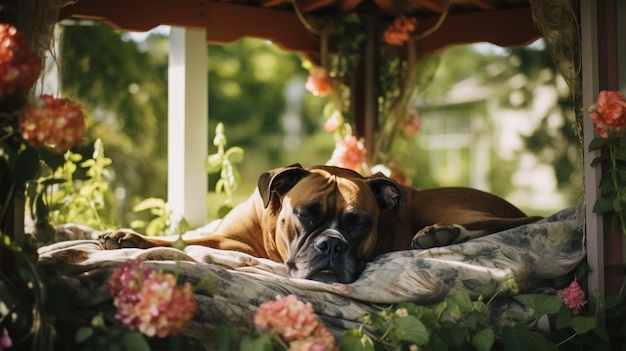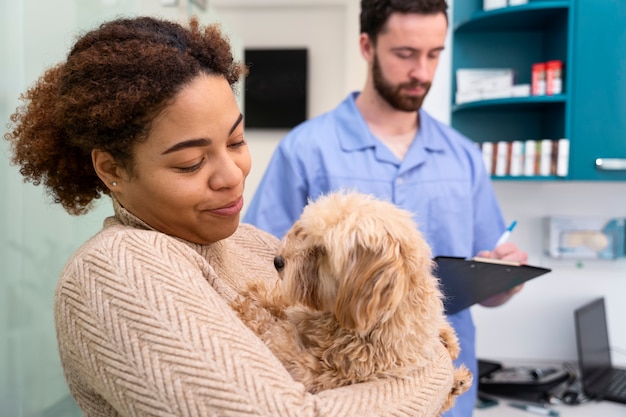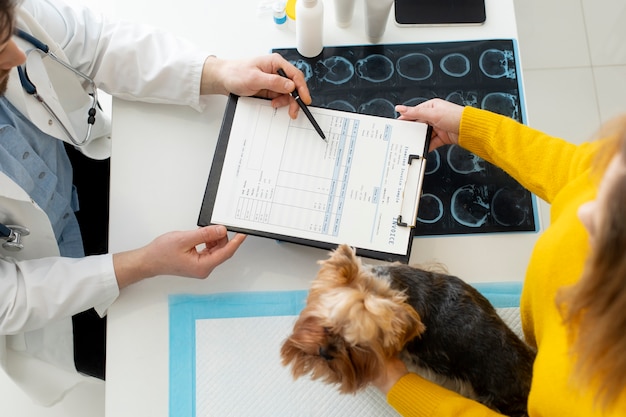Keep Pets Cool: Hot Weather Safety Tips for Flemington Owners


Keep Pets Cool: Hot Weather Safety Tips for Flemington Owners
When Flemington’s August sun beats down or humidity lingers into the evening, pet owners know it’s time to pay special attention to their furry and scaly companions. Dogs, cats, and exotic pets all face unique risks during the hottest months, and a little preparation goes a long way toward keeping them healthy and happy. At Clover Hill Animal Hospital, our veterinary professionals understand how quickly the summer heat can become dangerous, especially for pets who can’t tell you they’re uncomfortable. This guide will walk you through essential hot weather pet safety tips, including practical advice for keeping pets cool in summer, recognizing warning signs of heat stress, and knowing when to seek veterinary help.
Located at 240 US 202, Flemington, NJ 08822, our caring team at Clover Hill Animal Hospital is here to support you and your pets throughout the season. Whether you’re preparing for a family hike, a backyard barbecue, or simply navigating the daily dog walk in the summer heat, our commitment is to help you keep your animals safe and comfortable. For those looking to stay proactive, our wellness care services in Flemington are designed to catch early health concerns and offer tailored advice for your pet’s summer needs.
Let’s explore how you can protect your pets from heat-related dangers and ensure a cool, calm, and joyful summer in Flemington and surrounding communities.
Recognizing the Signs of Heat Stress in Pets
Understanding when your pet may be struggling with the heat is the first and most important step in hot weather pet safety. Unlike humans, pets can’t sweat to cool themselves off, and some species or breeds are more vulnerable than others. Key symptoms of heat stress in dogs and cats include excessive panting, drooling, restlessness, rapid heartbeat, vomiting, diarrhea, or lethargy. In severe cases, pets may collapse, have seizures, or become unresponsive. For exotic pets such as rabbits, guinea pigs, birds, or reptiles, signs of overheating can be subtler. You might notice open-mouth breathing, uncharacteristic hiding, red or flushed skin, or a sudden lack of activity.
Local climate conditions in Flemington—warm days with high humidity—can intensify these risks, especially for flat-faced dog breeds, elderly pets, overweight animals, and those with long or thick coats. Indoor pets are not immune either; a sunbeam on a closed window or a stuffy room can quickly overheat sensitive animals. If you ever notice any of these signs, prompt action is crucial to prevent complications.
Why Heat-Related Illness Happens: Causes and Risk Factors
To truly protect your pet, it helps to know why hot weather can be so dangerous. Most pets regulate their body temperature through panting or, in the case of some exotics, by seeking cooler spaces. However, when air temperatures rise above 80°F—especially with high humidity—these methods become less effective. Heat stroke in pets often develops when animals are left in parked cars, exercised too vigorously, or confined to poorly ventilated areas. In Flemington, even a quick errand can turn the interior of a car into a deadly oven within minutes, posing a severe risk even on cloudy days.
Breed and species also play a big role. Brachycephalic (flat-faced) dogs and cats, such as Bulldogs, Pugs, Persians, or Himalayans, have a harder time breathing efficiently and can overheat rapidly. Overweight pets, those with underlying heart or lung conditions, and animals with dark fur are also at increased risk. For exotic pets, improper enclosure placement—such as near a sunny window—can cause rapid overheating, especially in glass tanks that trap warmth.
Some pet owners may not realize that hot pavement or sand can burn paw pads, and excessive sun exposure can lead to sunburn, particularly for light-colored or hairless animals. These regional factors make summer pet safety in Flemington a top priority for all responsible owners.
Professional Care and Support: Veterinary Treatment and Prevention
If your pet is showing signs of heat stress or heat stroke, seeking immediate veterinary attention is vital. Our veterinarians at Clover Hill Animal Hospital are trained to quickly assess and treat pets suffering from heat-related illnesses. Treatment approaches involve lowering your pet’s body temperature safely, which may include intravenous fluids, oxygen therapy, and supportive care. The veterinary team may check for complications such as dehydration, organ dysfunction, or secondary infections. Early intervention not only improves the chance of a full recovery but also prevents long-term health consequences.
We encourage regular wellness examinations during the summer months. These visits allow our veterinary professionals to assess your pet’s overall health, discuss risk factors unique to your animal, and create a personalized plan for hot weather management. For pets who find travel stressful or for multi-pet households, our home wellness exams service in Flemington offers the convenience of veterinary care in your own home, helping to keep pets calm and comfortable while receiving professional attention.
For exotic pets, our veterinarians can advise on optimal enclosure placement, ventilation, and hydration strategies specific to your species. Preventive care remains the best defense—ensuring your pet is in good health before the hottest days arrive can make all the difference.
Keeping Pets Cool in Summer: Practical Prevention and Home Care Tips
Protecting your pets from summer’s heat starts with a few simple but essential habits. Always provide fresh, cool water and change it frequently, especially during hot spells. Place water bowls in shaded areas, and consider adding ice cubes for an extra cool treat. For dogs and outdoor cats, limit walks or playtime to early morning or late evening hours when temperatures are lower. Watch for hot surfaces; if pavement is too hot for your hand, it’s too hot for paws.
Indoors, use fans or air conditioning to maintain a comfortable environment, and keep blinds or curtains closed during peak sun hours. For exotic pets, regularly monitor enclosure temperatures and humidity, ensuring proper airflow and avoiding direct sunlight. Small mammals like rabbits or guinea pigs may appreciate a chilled, damp towel placed near (but not directly on) their resting area to create a cooler microclimate.
Grooming is another important step; regular brushing helps remove excess fur and prevents matting, which can trap heat. Never shave a pet without consulting a veterinarian, as fur can also protect against sunburn. For light-skinned or hairless pets, talk with our veterinarians about pet-safe sunscreens or protective clothing options.
If you’re traveling or spending time outdoors, always plan ahead. Bring portable water, provide shade, and never leave any animal unattended in a car, even for a minute. These hot weather pet safety tips are essential for every pet owner in Flemington looking to enjoy summer safely.
When to Contact Your Veterinarian: Recognizing Emergencies and Next Steps
Despite your best efforts, heat-related emergencies can still happen. If your pet is panting heavily, drooling excessively, appears disoriented, or collapses, take immediate action. Move your pet to a cool area, offer small amounts of water, and contact your veterinarian as soon as possible. For pets with ongoing health concerns or a history of heat sensitivity, more frequent check-ins with our veterinary team during the summer can provide peace of mind and early intervention.
If you notice changes in your pet’s behavior, appetite, or energy level during hot weather, do not wait. Early treatment often leads to better outcomes. Our veterinary professionals at Clover Hill Animal Hospital are here to guide you through the process, whether you need advice, a same-day appointment, or an urgent evaluation. For more details on what to expect during a veterinary visit, explore our wellness care services and stay proactive about your pet’s summer health.
For those who prefer the comfort of their own home or whose pets experience stress during transport, home wellness exams are available throughout Flemington and surrounding communities.
Conclusion: Trust Clover Hill Animal Hospital for All Your Summer Pet Safety Needs
Summer in Flemington is a time for outdoor fun and family adventures, but it also brings unique risks for our pets. By staying alert to the signs of heat stress, understanding the causes behind summer health risks, and following practical steps for keeping pets cool in summer, you give your animal companions the best chance at a happy, healthy season. Remember, prevention and timely action are key—never hesitate to reach out to your local vet near me when you have questions or concerns.
At Clover Hill Animal Hospital, our veterinarians are dedicated to supporting you and your pets with compassionate, comprehensive care all year round. Schedule an appointment for a wellness examination, inquire about our home wellness exams, or simply call our veterinary professionals for advice on hot weather pet safety tips in Flemington. You can reach us at (908) 806-4525 or visit us at 240 US 202, Flemington, NJ 08822. Your pet’s well-being is our top priority, and we look forward to being your trusted partner for veterinary services near me—this summer and beyond.
For more expert guidance, seasonal updates, or to book your next appointment, explore our website or contact our friendly veterinary team today. Let’s keep every tail wagging and every pet safe in the summer sun.
Disclaimer: This blog is for informational purposes only and should not substitute for professional veterinary care. If your pet is experiencing symptoms of heat stroke or another emergency, contact your veterinarian immediately.



















